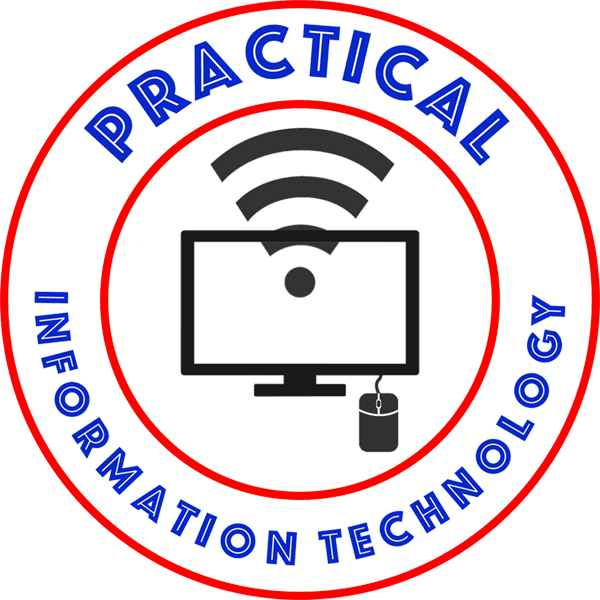
If you’ve been looking for a new career, or if you just want to switch things up a bit and get out of your current rut, you might be thinking about pursuing an IT job.
These roles can offer flexible hours as well as the opportunity to grow personally and professionally, all while helping your organization thrive in this digital age. With so many options out there, though, it can feel like there are even more questions than answers when trying to figure out which path is right for you.
What type of IT career do you want? Where do you see yourself in the next few years? Are those two things aligned with what you want to be doing? If not, what kind of pivot will help you get there?
Quality Assurance Tester/Tester
What’s Your Endgame?
While pursuing a new IT career is exciting, it’s also a big decision that requires some serious consideration and planning.
Before you dive too far into job boards and online coursework, ask yourself a few key questions:
Why do you want to pursue an IT career?
What are your strengths and weaknesses?
Where do you see yourself in five years?
Once you’ve figured out the “why” behind pursuing a career in IT, it’s easier to start thinking about what type of IT career would be the best fit. That said, there are some common paths that many IT professionals choose.
You can work as an IT consultant, in IT support, or in software development, administration, or infrastructure. There are lots of other roles in IT too, though, that can help you grow in different ways and provide you with different experiences.
Intro to IT Careers
The world of IT is full of different career paths, each with their own unique qualities. While many of these roles require the same skillsets and knowledge, they each have their own specific things that make them unique.
As you begin to think about which path you want to take, it can be helpful to look at these different careers to help you narrow down what it is that you’re looking for.
Full Stack Developer
These developers are responsible for creating and maintaining applications as well as the backend infrastructure where they’re hosted. People in this career track often come from a computer science or software engineering background, though others who have pursued a more project-based approach can also be full stack developers.
The responsibilities of a full stack developer may include: – Designing and creating applications and their backend infrastructure. – Testing their own code. – Working with a team to set up their application’s back end hosting.
This is the best by far and you can also become full stack developer.
Network Engineer
Network engineers are responsible for managing network infrastructure and overseeing network security. Network engineers often come from a background in IT administration and may have experience with other disciplines as well, like software development or systems administration.
The responsibilities of a network engineer may include: – Managing and monitoring network traffic. – Maintaining network architecture and performance. – Managing network security and access.
Data Scientist
A data scientist is someone who analyzes huge amounts of data to find new insights, create new products, and develop new services. They might be responsible for analyzing data to predict future trends, creating models and algorithms, or even designing new software.
Data scientists are often hired by research and development teams, though many also work in marketing, business intelligence, and other departments. The responsibilities of a data scientist may include: – Extracting insights from massive amounts of data to help create new products or services.
Creating models and algorithms using data to make predictions and inform decision-making. – Designing new software using data to inform features and functionality.
Quality Assurance Tester/Tester
These IT professionals are responsible for testing software, websites, apps, and other products for bugs and defects. They may come from a development or systems administration background, but some may also be trained in testing or have a background in another field, like project management.
The responsibilities of a QA tester or tester may include: – Finding bugs in products, apps, and websites. – Creating test cases and test plans to help ensure bugs don’t make it to production. – Coordinating with development teams to finalize product timelines.
Helpdesk Technician
Helpdesk technicians are responsible for managing support tickets and troubleshooting bugs and issues. While most helpdesk technicians work in a call center environment with a team, some may work remotely as well.
The responsibilities of a helpdesk technician may include: – Managing support tickets from customers who are experiencing issues with products or services. – Analyzing the cause of customer issues and recommending ways for them to be resolved.
Keeping track of ticket statuses to make sure issues are being resolved in a timely manner.
Network Administrator
Network administrators are responsible for managing and maintaining networks, as well as keeping track of network security.
Network administrators may come from a variety of backgrounds and may be called upon to help with other IT duties as well, like troubleshooting.
The responsibilities of a network administrator may include: – Managing and maintaining networks, including installing new hardware and software.
Keeping track of network security and making sure networks are protected. Helping with troubleshooting network issues when they arise.
Conclusion
The world of IT is full of different career paths, each with their own unique qualities. While many of these roles require the same skillsets and knowledge, they each have their own specific things that make them unique.
It can be helpful to look at these different careers to help you narrow down what it is that you’re looking for. When it comes time to apply for jobs and interview for roles, make sure you do your research on the company and the role so you can be sure the position is a good fit for you.
You can also use the information you’ve learned about each career to think about what you want to say in your cover letter and during your interview to help you stand out from the pack.
We have figured all what is required to get you to your new IT career independent of your background. Learn more on how to be come IT Professional.


